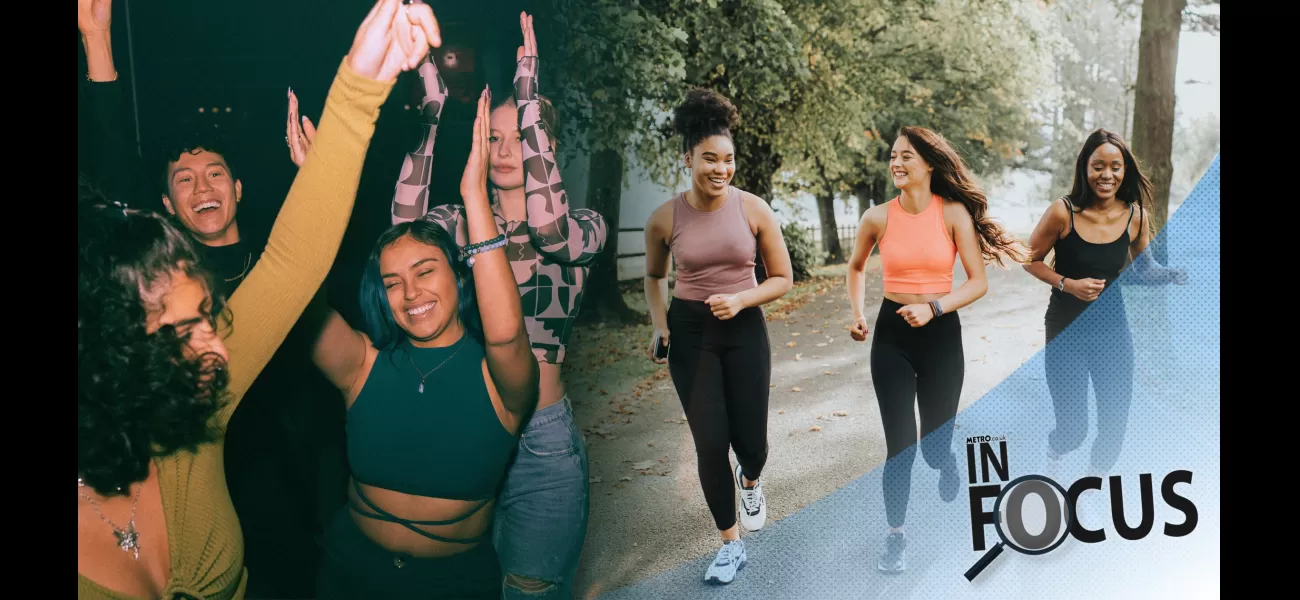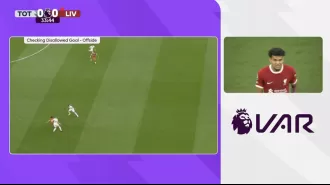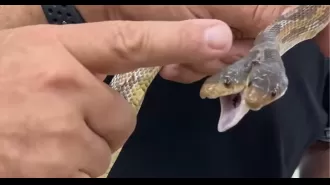Running clubs are now replacing traditional nightclubs due to their increasing popularity and positive impact on health.
"Many are exchanging clubs and sugary drinks for nature trails and energy drinks."
April 26th 2024.

It's no secret that Britain's nightlife scene is facing a crisis. The rising cost of living, coupled with the impact of the Covid pandemic, has led to the closure of nearly 400 clubs and an equal number of pubs in just the last year alone. But beyond these economic challenges, there is a larger societal shift taking place.
In recent years, we have seen a decline in alcohol consumption among younger generations. Instead of hitting the dancefloor and indulging in sugary drinks, many are now opting for outdoor activities like running. This trend of "reclaiming" weekends has gained momentum, with thousands of people swapping neon lights for nature trails and sports drinks.
Molly Slater-Davison, the founder of These Girls Run, a popular all-female running and wellness club, believes that the pressures of modern life, rising living costs, and longer working hours have contributed to this shift. As she explains, "I used to go out on Fridays and Saturdays and end up spending the entire weekend hungover on my couch. But now, I want to make the most of my free time and get outside to breathe fresh air."
Molly, who started These Girls Run in 2021, says that young people today want to "own" their weekends and make the most of their free time. She adds, "With running, you get the social aspect of going out and drinking, but you can actually remember it the next day." It's not about using alcohol to boost confidence, but rather genuinely connecting with others and making the most of their weekends. And while many of the club's members still enjoy a drink, there is a growing desire to prioritize their overall well-being and not waste their weekends recovering from a wild night out.
Statistics show that Gen Z's alcohol consumption has dropped by 25% in the last four years. At the same time, the #RunTok hashtag on TikTok has amassed over 3.4 billion views, and the popular NHS Couch to 5k app has been downloaded more than 6.5 million times. This trend towards health and wellness has even led to the creation of over 2,300 parkrun events worldwide.
With wellness and wholesome internet trends gaining popularity, a new generation is choosing to swap hazy hangovers for "run club Saturdays" and documenting their journey on social media. For some, this shift may be inspired by events like the London Marathon and Race for Life, while for others, it's simply a way to prioritize their mental and physical health.
Emily Young, who leads the Bondi Rise & Run club in London, is a great example of this. She admits that she used to be the "complete opposite" of a sporty person and only got into running in her early twenties when she was struggling with anxiety and looking for an outlet. Now, she loves nothing more than hitting the hills with her cocker spaniel, Ragnar, and sharing her passion for running with others. Emily explains, "I've been spending my Saturdays running for about 10 years now. At first, I was the odd one out, but things have certainly changed. Nowadays, I feel like I have FOMO if I'm not part of some sort of fitness club. Despite running being considered a solitary sport, it has created a strong sense of community for me."
The Covid pandemic has also highlighted the importance of outdoor activities and staying active. As Emily points out, "During lockdown, people realized what they missed the most when it was taken away from them. And I don't think many people missed going out and feeling terrible the next day. They missed being outside, something that was limited to just one hour a day."
For many young people, the financial situation has only worsened since lockdown lifted. With rising living costs and the struggle to get on the property ladder, a wild night out can be a luxury that they simply cannot afford on a weekly basis. In comparison, joining a group run with These Girls Run costs around £4, making it a much more affordable way to socialize. But for Molly, the post-run coffee, cake, and chat are about more than just saving money. It's a way to create a safe and inclusive space for women to come together and support each other.
Molly shares, "I remember sitting in PE class in primary and secondary school, obsessing over how my legs looked. This is something that many women can relate to. At the age of 15 or 16, I developed an eating disorder and started running for all the wrong reasons - to burn calories. I wasn't eating enough to fuel my runs, and I wasn't concerned about hydration or any other aspect of my overall health."
After years of therapy and hard work, Molly now runs for the right reasons and encourages others to do the same. She explains, "If I go for a run now, I always ask myself why I'm doing it. Is it because I genuinely want to, or is it because I feel guilty about that ice cream I ate last night? It's about being mindful and prioritizing our well-being."
Forget dancefloors and VKs, it's now all about hitting the trails and staying hydrated with Gatorade. It's no secret that Britain's nightlife scene is facing a crisis, with nearly 400 clubs and the same number of pubs shutting down in the past year due to rising costs and the impact of the pandemic. But there's also a larger cultural shift happening.
Younger generations are drinking less and prioritizing their health and well-being, opting for outdoor activities rather than late nights at the club. Thousands are choosing to "reclaim" their weekends by trading in sticky floors and sugary drinks for muddy trails and sports drinks. Molly Slater-Davison, founder of the all-female running and wellness club These Girls Run, explains that the pressures of modern life and the desire to make the most of free time are contributing to this shift.
"I used to go out every Friday and Saturday night, but now I prefer to get outside and breathe in some fresh air instead of being hungover on the couch," Molly tells Metro. "With running, I get the social aspect of going out but I can actually remember it. Plus, I don't need alcohol to boost my confidence. It's more about genuinely wanting to connect with others and make the most of my weekends."
This trend is reflected in the numbers, with research showing that Gen Z's alcohol consumption has decreased by 25% in the past four years. On social media, the #RunTok hashtag has over 3.4 billion views, and the NHS Couch to 5k app has been downloaded more than 6.5 million times. Additionally, there are now over 2,300 parkrun events worldwide.
The rise of wellness and wholesome internet trends has inspired a new generation to prioritize their mental and physical health over partying. Events like the London Marathon and Race For Life have also played a role in encouraging people to be more active and document their fitness journey. Emily Young, who used to be "the complete opposite" of a sporty person, credits running for helping her manage anxiety and connect with others.
"Gen Z has made running cool in every sense," Emily explains. "I used to be the odd one out, but now I feel like I'm missing out if I'm not part of a run or fitness club. Although running is considered a solitary activity, it actually creates a strong community. During the pandemic, many people realized that what they truly missed was being able to go outside and enjoy the outdoors, rather than going out and getting drunk."
It's not just about health and wellness, but also about financial stability for younger generations. With the rising cost of living and the struggle to save for the future, nights out can be a luxury that many can no longer afford. In comparison, joining a running club like These Girls Run, with its affordable group runs and post-run coffee and cake tradition, can be a more budget-friendly option.
But for Molly, the importance of creating a positive body image and promoting a healthy relationship with exercise is also a personal mission. Having struggled with an eating disorder in her teenage years, she now uses running as a way to focus on her mental and physical well-being rather than solely burning calories.
"I remember sitting in PE class in primary and secondary school, analyzing the way my legs looked," Molly shares. "Many women, myself included, grew up with a negative body image from an early age. I developed an eating disorder at 15 or 16 and initially turned to running as a way to burn calories. But now, I make sure to check in with myself and my reasons for running. Is it because I genuinely enjoy it, or because I feel guilty for indulging in some ice cream last night?"
In recent years, we have seen a decline in alcohol consumption among younger generations. Instead of hitting the dancefloor and indulging in sugary drinks, many are now opting for outdoor activities like running. This trend of "reclaiming" weekends has gained momentum, with thousands of people swapping neon lights for nature trails and sports drinks.
Molly Slater-Davison, the founder of These Girls Run, a popular all-female running and wellness club, believes that the pressures of modern life, rising living costs, and longer working hours have contributed to this shift. As she explains, "I used to go out on Fridays and Saturdays and end up spending the entire weekend hungover on my couch. But now, I want to make the most of my free time and get outside to breathe fresh air."
Molly, who started These Girls Run in 2021, says that young people today want to "own" their weekends and make the most of their free time. She adds, "With running, you get the social aspect of going out and drinking, but you can actually remember it the next day." It's not about using alcohol to boost confidence, but rather genuinely connecting with others and making the most of their weekends. And while many of the club's members still enjoy a drink, there is a growing desire to prioritize their overall well-being and not waste their weekends recovering from a wild night out.
Statistics show that Gen Z's alcohol consumption has dropped by 25% in the last four years. At the same time, the #RunTok hashtag on TikTok has amassed over 3.4 billion views, and the popular NHS Couch to 5k app has been downloaded more than 6.5 million times. This trend towards health and wellness has even led to the creation of over 2,300 parkrun events worldwide.
With wellness and wholesome internet trends gaining popularity, a new generation is choosing to swap hazy hangovers for "run club Saturdays" and documenting their journey on social media. For some, this shift may be inspired by events like the London Marathon and Race for Life, while for others, it's simply a way to prioritize their mental and physical health.
Emily Young, who leads the Bondi Rise & Run club in London, is a great example of this. She admits that she used to be the "complete opposite" of a sporty person and only got into running in her early twenties when she was struggling with anxiety and looking for an outlet. Now, she loves nothing more than hitting the hills with her cocker spaniel, Ragnar, and sharing her passion for running with others. Emily explains, "I've been spending my Saturdays running for about 10 years now. At first, I was the odd one out, but things have certainly changed. Nowadays, I feel like I have FOMO if I'm not part of some sort of fitness club. Despite running being considered a solitary sport, it has created a strong sense of community for me."
The Covid pandemic has also highlighted the importance of outdoor activities and staying active. As Emily points out, "During lockdown, people realized what they missed the most when it was taken away from them. And I don't think many people missed going out and feeling terrible the next day. They missed being outside, something that was limited to just one hour a day."
For many young people, the financial situation has only worsened since lockdown lifted. With rising living costs and the struggle to get on the property ladder, a wild night out can be a luxury that they simply cannot afford on a weekly basis. In comparison, joining a group run with These Girls Run costs around £4, making it a much more affordable way to socialize. But for Molly, the post-run coffee, cake, and chat are about more than just saving money. It's a way to create a safe and inclusive space for women to come together and support each other.
Molly shares, "I remember sitting in PE class in primary and secondary school, obsessing over how my legs looked. This is something that many women can relate to. At the age of 15 or 16, I developed an eating disorder and started running for all the wrong reasons - to burn calories. I wasn't eating enough to fuel my runs, and I wasn't concerned about hydration or any other aspect of my overall health."
After years of therapy and hard work, Molly now runs for the right reasons and encourages others to do the same. She explains, "If I go for a run now, I always ask myself why I'm doing it. Is it because I genuinely want to, or is it because I feel guilty about that ice cream I ate last night? It's about being mindful and prioritizing our well-being."
Forget dancefloors and VKs, it's now all about hitting the trails and staying hydrated with Gatorade. It's no secret that Britain's nightlife scene is facing a crisis, with nearly 400 clubs and the same number of pubs shutting down in the past year due to rising costs and the impact of the pandemic. But there's also a larger cultural shift happening.
Younger generations are drinking less and prioritizing their health and well-being, opting for outdoor activities rather than late nights at the club. Thousands are choosing to "reclaim" their weekends by trading in sticky floors and sugary drinks for muddy trails and sports drinks. Molly Slater-Davison, founder of the all-female running and wellness club These Girls Run, explains that the pressures of modern life and the desire to make the most of free time are contributing to this shift.
"I used to go out every Friday and Saturday night, but now I prefer to get outside and breathe in some fresh air instead of being hungover on the couch," Molly tells Metro. "With running, I get the social aspect of going out but I can actually remember it. Plus, I don't need alcohol to boost my confidence. It's more about genuinely wanting to connect with others and make the most of my weekends."
This trend is reflected in the numbers, with research showing that Gen Z's alcohol consumption has decreased by 25% in the past four years. On social media, the #RunTok hashtag has over 3.4 billion views, and the NHS Couch to 5k app has been downloaded more than 6.5 million times. Additionally, there are now over 2,300 parkrun events worldwide.
The rise of wellness and wholesome internet trends has inspired a new generation to prioritize their mental and physical health over partying. Events like the London Marathon and Race For Life have also played a role in encouraging people to be more active and document their fitness journey. Emily Young, who used to be "the complete opposite" of a sporty person, credits running for helping her manage anxiety and connect with others.
"Gen Z has made running cool in every sense," Emily explains. "I used to be the odd one out, but now I feel like I'm missing out if I'm not part of a run or fitness club. Although running is considered a solitary activity, it actually creates a strong community. During the pandemic, many people realized that what they truly missed was being able to go outside and enjoy the outdoors, rather than going out and getting drunk."
It's not just about health and wellness, but also about financial stability for younger generations. With the rising cost of living and the struggle to save for the future, nights out can be a luxury that many can no longer afford. In comparison, joining a running club like These Girls Run, with its affordable group runs and post-run coffee and cake tradition, can be a more budget-friendly option.
But for Molly, the importance of creating a positive body image and promoting a healthy relationship with exercise is also a personal mission. Having struggled with an eating disorder in her teenage years, she now uses running as a way to focus on her mental and physical well-being rather than solely burning calories.
"I remember sitting in PE class in primary and secondary school, analyzing the way my legs looked," Molly shares. "Many women, myself included, grew up with a negative body image from an early age. I developed an eating disorder at 15 or 16 and initially turned to running as a way to burn calories. But now, I make sure to check in with myself and my reasons for running. Is it because I genuinely enjoy it, or because I feel guilty for indulging in some ice cream last night?"
[This article has been trending online recently and has been generated with AI. Your feed is customized.]
[Generative AI is experimental.]
0
0
Submit Comment





